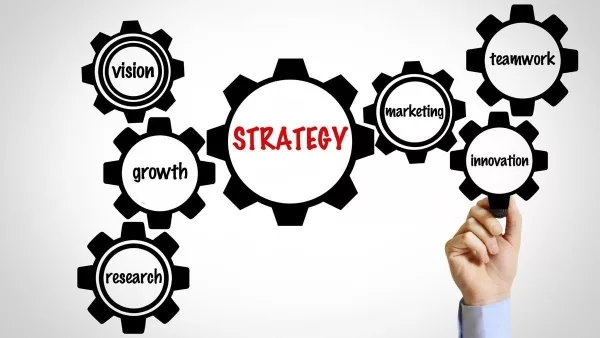The business world’s tendency to use the terms “strategy” and “planning” interchangeably poses a dilemma for companies striving for market dominance. To help you succeed in today’s cutthroat business environment, we’ll break down the complex link between strategy and planning and look at the reasons why the old-fashioned yearly planning model might not cut it.
Planning Made Easy
The three main components of any effective plan are objectives, a strategy for reaching those objectives, and a set of rules for making decisions. A company’s strategic plan is its road map to success, outlining its goals and outlining the steps to reach them. Planning is essential, but is it sufficient to ensure success?
The Value and Goal of Planning
A company’s planning process has many valuable functions. In the first place, it helps to clarify the organisation’s goals and purpose, which in turn helps to coordinate resources and efforts. Second, it assists in reducing risk by thinking ahead to possible obstacles and creating plans to overcome them. Thirdly, departments work together in harmony to achieve common objectives when planning encourages open dialogue and cooperation.
Organisations have a lot to gain from planning. Making operational decisions, creating budgets, and allocating resources are all made easier with its help. A well-thought-out plan ensures that the organisation is ready to deal with unexpected challenges and can methodically solve problems. However, the conflict emerges when you try to decide if the plan should prioritise cutting costs or increasing revenues. Many planning processes have historically prioritised efficiency and cost containment. Although cost-focused planning is essential for financial stability, it could unintentionally hinder innovation and growth prospects. Achieving long-term success for any company requires careful management of expenses while simultaneously increasing revenue.
Understanding Strategy
The strategy focuses on the “what” and “why,” as opposed to planning’s dominance of the “how.” Strategic decision-making is the practice of gaining an edge over rivals. Accomplishing this requires an in-depth familiarity with the company’s internal strengths and weaknesses, as well as the external environment and market dynamics. A company’s success hinges on its strategy, which is different from planning.
What makes strategy so important?
Strategic decision-making boils down to setting your company apart from the competition. Creating a competitive advantage, determining target markets, and outlining a distinct value proposition are all part of it. The focus of planning is on getting things done, whereas the goal of strategy is to identify which tasks are most important and then allocate resources appropriately.
Strategic planning necessitates an in-depth evaluation of both internal and external factors, including opportunities and threats. A thorough familiarity with the market, the client’s wants and needs and the competitive environment is essential for developing strategies. Successful strategy execution requires open lines of communication, coordinated efforts, and dedication to the big picture.
Obstacles to Implementing a Strategy
There are many obstacles to overcome when putting a strategy into action, despite its importance. From internal factors like resistance to change to external ones like market volatility, these challenges cover a wide spectrum. Miscommunication, a lack of funding, and an unwillingness to change course in the face of uncertainty all contribute to a longer time lag between strategy development and implementation. No business strategy can survive in today’s fast-paced world if it remains static. To make sure the strategy stays effective and relevant, it must be reviewed and adjusted regularly. As time goes on, technology advances, market conditions change, and consumer tastes change. Companies run the danger of becoming irrelevant and uncompetitive if they don’t change with the times.
To stand out in a crowded marketplace, you need to differentiate yourself in terms of strategy. It entails setting the company apart from rivals by developing a distinctive value proposition that attracts customers. Differentiation may stem from cost leadership, product innovation, or exceptional customer service.
Strategy and Planning
The crux of the matter lies in whether an organisation should base its strategy on planning or vice versa. Will the strategy shape the plan, or will the plan shape the strategy? To achieve harmony between these two components, it is essential to find the sweet spot. In an ideal world, strategic planning would act as the connector between strategy and planning. It entails coordinating the organisation’s long-term goals with its short-term strategies. Strategic planning unites strategy and planning into one coherent framework, eliminating silos and promoting alignment throughout the organisation.
As complex as it is, the relationship between strategy and planning is critical to any organisation’s success. It is critical to be able to distinguish between the two while also comprehending how they are interrelated. In today’s fast-paced business world, the static annual planning model might not be enough. A more flexible and holistic strategy is needed. As the connecting link between strategy and planning, strategic planning paves the way to success in both the here and now and the future of business. When we next talk about strategic planning, let’s be crystal clear: it’s about more than just planning; it’s about creating and implementing a winning strategy.
View Linked Article : Click Here

